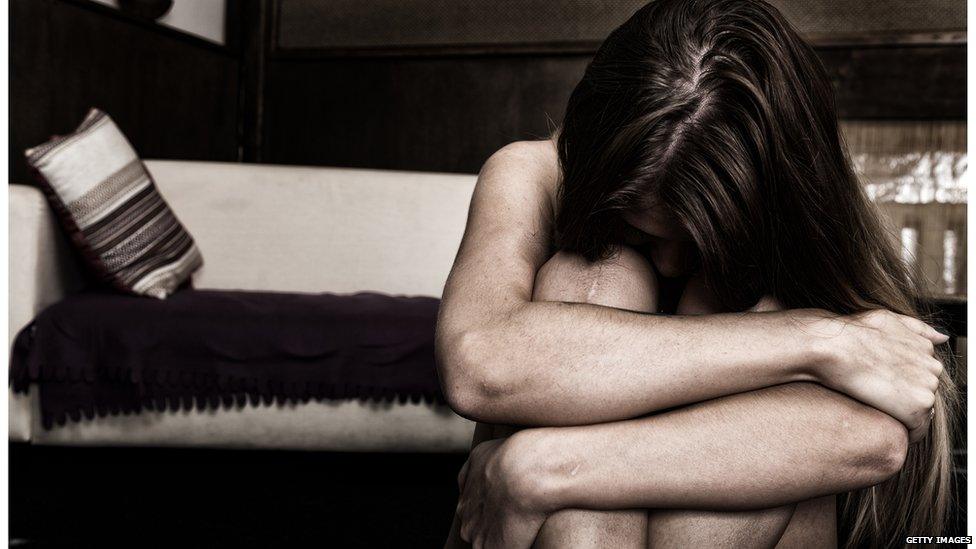Police officers get extra domestic violence training
- Published
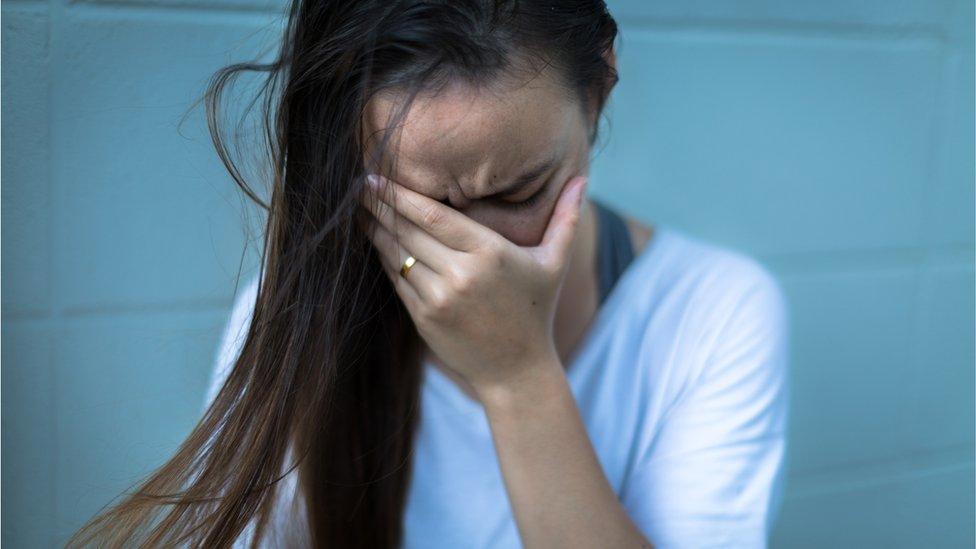
Extra training has been introduced because of increased reports of domestic violence
Police officers have been given extra training to improve the help they provide to women suffering domestic violence.
About 60 officers in the Fermanagh and Omagh district have received training from Fermanagh Women's Aid.
There are plans for all officers in the district to receive the training.
Over the last 12 months, the PSNI recorded its highest figure for domestic violence, with 31,008 domestic abuse incidents recorded.
Ch Insp Clive Beatty said the domestic and sexual violence awareness training had given officers a better understanding of the issues facing vulnerable women.
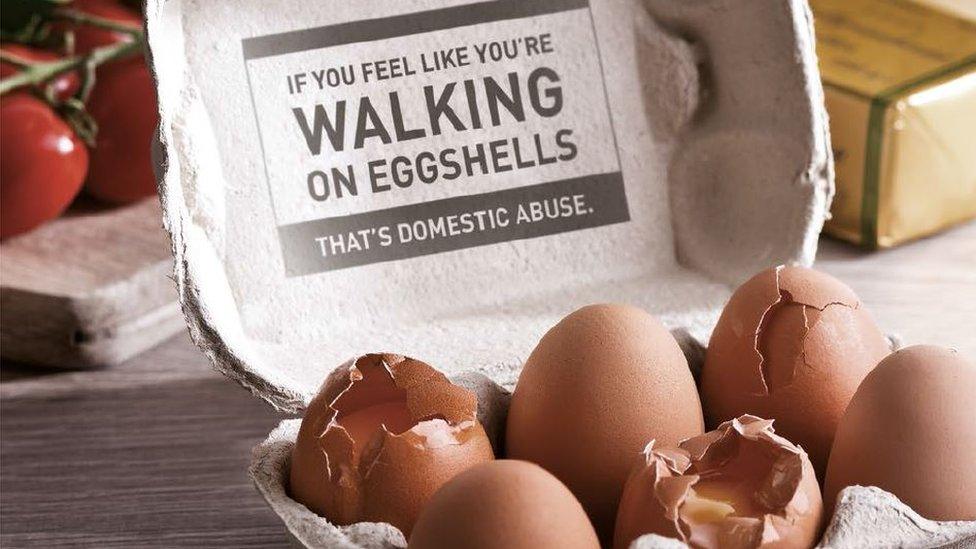
The PSNI's Christmas campaign is aimed at encouraging victims to report domestic abuse
"Part of this training was to equip the officers to see beyond the black eye and really get to understand what's going on in that woman's life and how we can make it better for her," he said.
"The officers themselves now get it, they really understand what domestic abuse is and it's not just about black eyes, it's much more than that.
"There's a hidden domestic abuse that is going on in so many homes that we are only scratching the tip of the iceberg with."
'Mind games'
Between 1 October 2017 and 30 September 2018, there were 31,008 domestic abuse incidents recorded - the highest since records began in 2004/05.
The highest level of incidents reported to police was on New Year's Day, when 142 calls for help were received, compared to 147 the previous year.
Michelle Alonso is the training coordinator at Fermanagh Women's Aid.
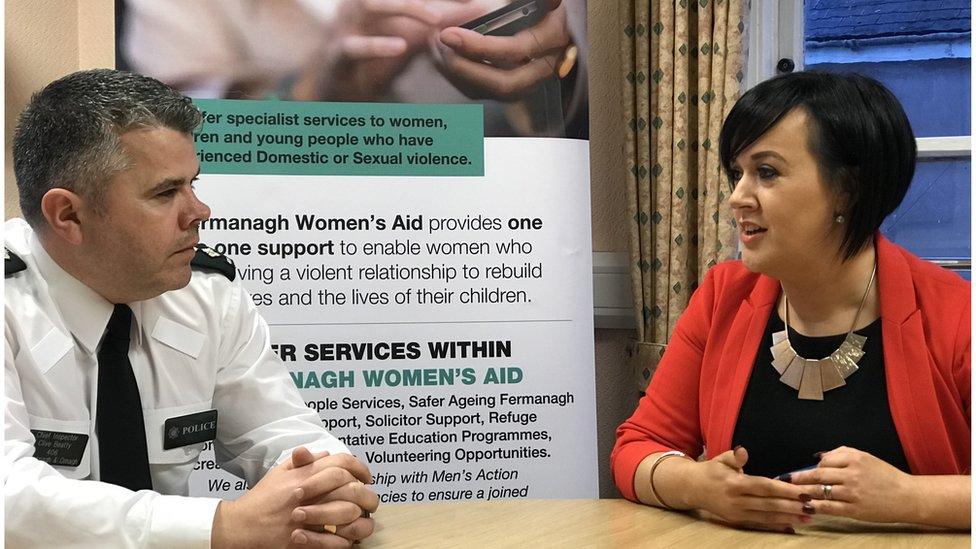
Ch Insp Clive Beatty and Michelle Alonso from Fermanagh Women's Aid
"On average women will not phone the PSNI until there has been an assault, maybe 35 times, so this training was tailored to provide understanding as to what has been happening in that household prior to that phone call happening," she said.
She said it had helped to dispel the myths about domestic and sexual violence.
"One of the biggest misconceptions and questions we would have is: 'Why don't women just leave, I just don't understand why women just don't get out of there?'
"The most positive feedback we got was that we completely understand the reason why women don't leave, there's a lot going on behind closed doors that we don't see and that it all really comes down to the abuse of power and control.
"Domestic violence is not just extreme and physical, it's subtle, it's mind games and it's manipulation and that was one of the biggest learning curves the officers had said in their feedback about this training."
'Lift the phone'
Ch Insp Beatty said he hoped more women would be encouraged to come forward and seek help.
"Our main drive before was sometimes all about the criminal justice process," he said.
"Our role is to protect people and prevent harm, that's what we do day in day out, and officers were getting frustrated when they didn't get a statement of complaint or the statement of complaint was withdrawn.
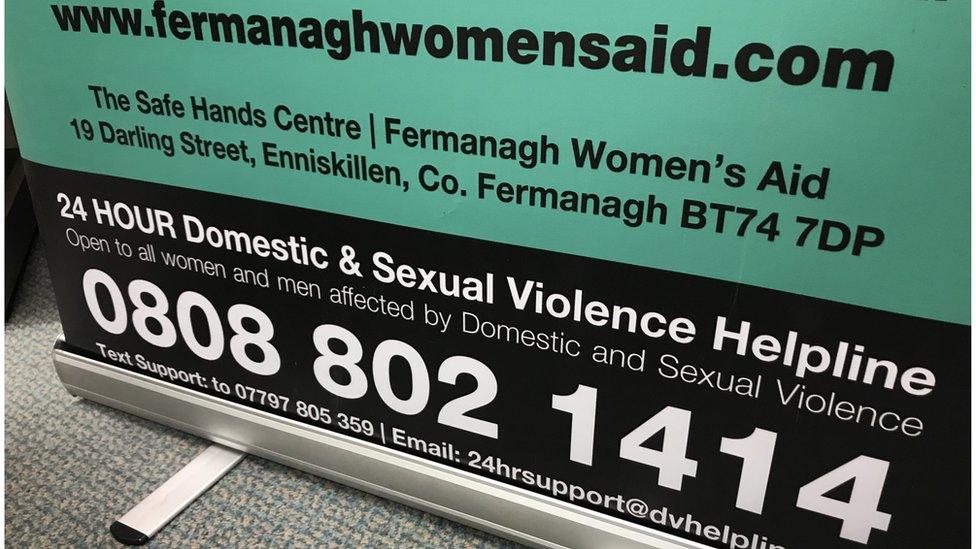
There are plans for all officers in Fermanagh and Omagh to get training
"But in reality the officers who've now been trained have realised it's much more than just the criminal justice journey, a journey with a partner (agency) to support that woman to a much better place is sometimes just what that woman wants and needs.
"Now more people are getting the courage to put their hand up, to lift the phone and phone us, or walk into Women's Aid or walk into a police station to actually, for the first time, take that brave step to report the domestic abuse and seek the support they so deserve."
The Women's Aid 24-hour domestic and sexual violence helpline is 0808 802 1414.
- Published26 March 2018
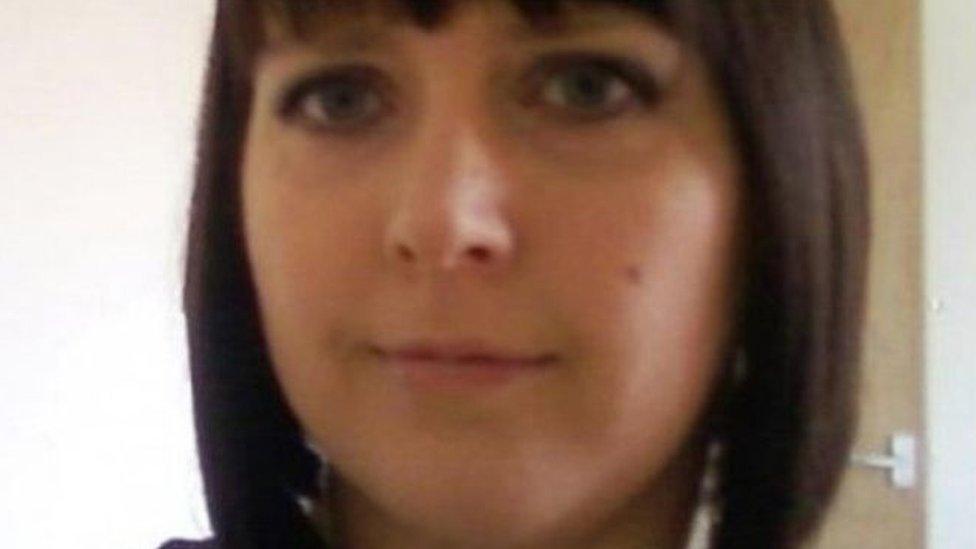
- Published6 July 2018

- Published13 December 2018
